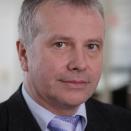Young elites from East and West discuss the “Russian Spring” during the 24th “Laboratory of the Future”
The Russians wanted consumption…
The historian Katja Machotina argued that communism is not always viewed negatively in Russian cultural memory: “In the West, World War II is equal to the Holocaust while in Russia everyone thinks of how the victorious Red Army liberated Russia from the Nazi regime. For Germans, Breschnew means stagnation but for Russians it means stability.” Thus, according to opposition leader Ilya Ponomarev, communism did not vanish primarily for political reasons: “Most Russians were not opposed to communism as a political idea in itself, they just wanted consumption – jeans and sausages.” Even Stalin’s brutal collectivization was regarded as a necessary step to boost the country’s industrialization.
…but now they want to have a say in politics
Today’s opposition is demanding fair elections and is therefore genuinely political. “Paradoxically, it was Putin’s own economic policy which created the Russian middle class. But Putin’s children are now grown up and they are not ready to give up their freedom for the sake of stability” said Russia expert Alexander Rahr. For him, Putin’s new election program could seek to initiate a dialogue with the opposition, but Putin’s rearrangement of his cabinet (i.e the appointment of Dmitry Rogosin) was not at all democratic. It was evident from the meeting that the possibilities opened up by the Internet have greatly benefited Russian civil society. But there was one critical voice: “online content is often simplified, shortened, and prone to nationalist ideology instead of democratic values.”
Eurasia Instead of Europe
The Ukrainian and Egyptian revolutions have shown that Western-style democracy is not necessarily what protesters long for. According to the director of the Moscow Gumilev Centre, Pavel Sarifullin, similar reasoning also holds true for Russia: “The Facebook generation wants a revolution but when democratic elections are held, the traditionalists win.” Therefore, he argued, Vladimir Putin cannot turn to more liberal policies because the population simply would not follow him. As Dmitri Suslov pointed out, “the idea of a Eurasian Union in the post-Soviet space is becoming more attractive while the partnership for modernization with a naughty EU becomes more and more unrealistic.” According to the lecturer at the Moscow Higher School of Economics, Russia wants a “Europe of two poles.”
The participants were not clear about whether Russia and the EU will be able to build a “Common European House.” A lot will depend on developments within Russia – but also on how well the EU understands and reacts to these developments.
The St. Petersburg Dialogue’s “Laboratory of the Future” is coordinated by the Berthold Beitz Center at the DGAP and the Russian information agency Rosbalt. The 24th session was held in cooperation with the history network EUSTORY of the Körber Stiftung.
